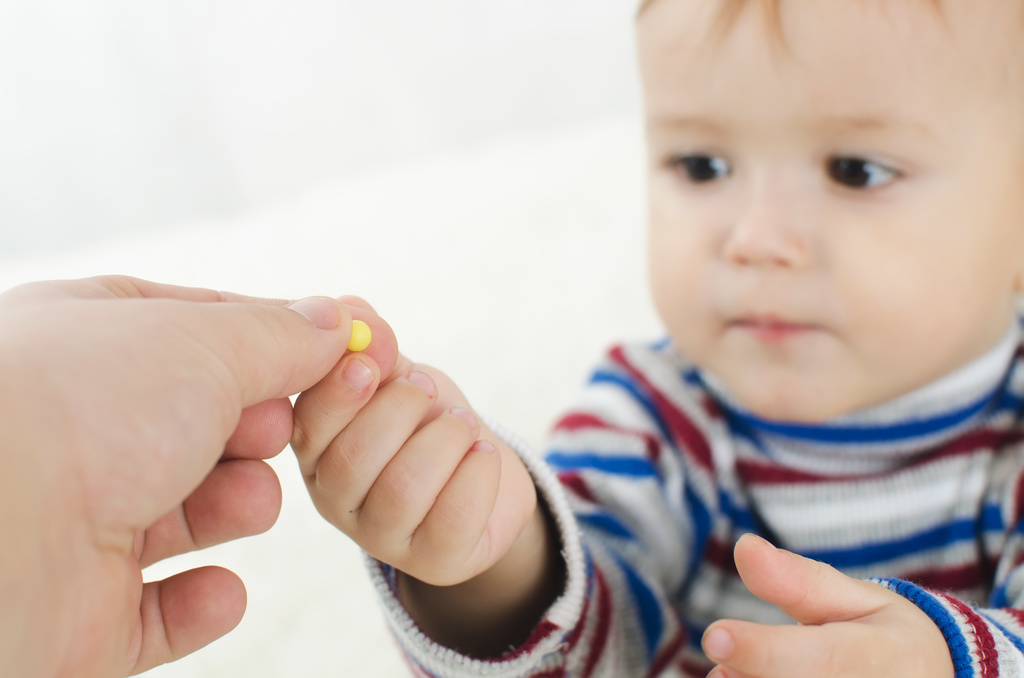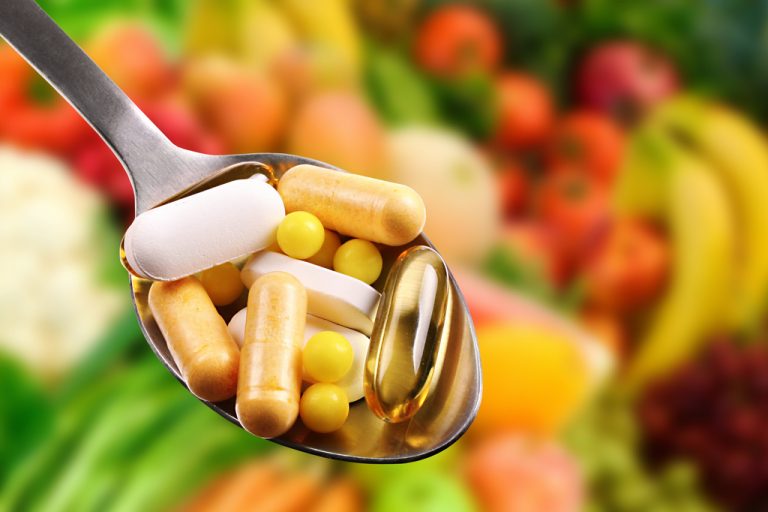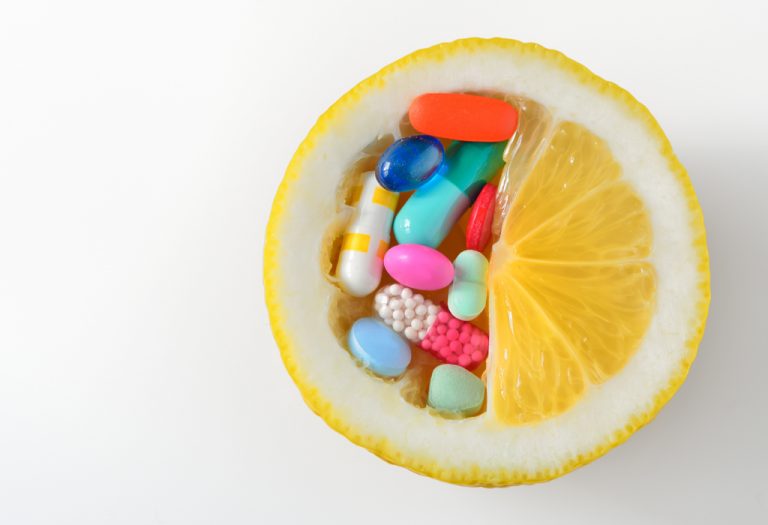SingaporeMotherhood | Preschooler & Up
May 2017
Do Your Kids Really Need Supplements? 11 of Your Questions Answered By a Pharmacist.

Majority of Singaporean parents today seem to be feeding their children at least one dietary supplement. You have probably bought some cute gummy bear-shaped multivitamins for your little one, haven’t you? But should your child be gobbling down a daily cocktail of vitamins at all? We asked Mr. Max Chan, Pharmacist at Watsons’ Bukit Panjang Plaza, to settle the child supplements question once and for all.
(See also: Top 20 Brain Foods for Kids to Stay Sharp for Their Exams)
1. Are supplements necessary for children?
No, supplements and multivitamins are not strictly necessary. They are only useful if young children do not get a balanced diet. The two main reasons for an imbalanced diet are children who are picky eaters, and families who are increasingly eating out rather than cooking wholesome meals at home.
2. What kinds of supplements are suitable for children?
The most common supplements are once-a-day multivitamins containing vitamins A to E and minerals like zinc and magnesium. Other more commonly found supplements include calcium supplements for teeth and bone development, Vitamin C and zinc for immunity as well as omega-3 for eye and brain development.
3. How much of supplements should I be giving my child?
As long as the supplements are given to children according to labelled recommendations — that is, appropriate dosage suitable for the recommended age — the levels of vitamins and minerals should be within safe limits.
(See also: Are You Feeding Your Baby Healthy Snacks Between Meals?)
4. How can I ensure that my child gets sufficient nutrients through his diet?
It goes without saying that meals for children should be as wholesome and unprocessed as possible. Foods consisting of whole grains, fruits, vegetables, low-fat dairy products and lean meat or fish are recommended. More importantly, parents should endeavour to establish good eating habits in their children from young and set a good example for their children to follow.
Recommended naturally fortified foods include dark green leafy vegetables like kale and spinach – these are packed with iron for children’s developmental needs. Eggs are also dense with protein, choline, lutein, zeaxanthine, vitamins and minerals.
These aid in overall development of children, especially of their brains, eyes and nerves. Some vitamins and minerals do not naturally occur much in food we usually eat, hence they have to be added through fortification. These include Vitamin D and B12 which are added to milk formulas, cereals and juices.
5. How old should my child be before I start giving her supplements?
Most supplements can be given to children once they have started on a solid diet. For children who are partially or exclusively breastfed, there are supplements which are recommended for parents to give. Vitamin D is recommended for newborns (400IU/day) and iron supplementation can be given at 4 months and above (up to 11mg/day) if these nutrients are lacking in formula milk.
6. Should I be giving my child only prescribed supplements?
Supplements are widely available off the shelves and are generally safe for public use. Parents should consider consulting pharmacists or doctors who can recommend the most suitable supplements for their children’s needs.
7. Other parents recommend supplements that can apparently boost my child’s immunity. Is there such a thing?
A child who has vitamin C and/or zinc deficiency may benefit from these supplements as they are important for immune system development. Black elderberry extract (sambucus nigra) has also been shown to help maintain a healthy immune system.
(See also: 10 Foods & Drinks to Fight The Haze)
8. How can I tell if a supplement is from a genuine source?
The best way to get genuine and well-sourced supplements is to purchase from established stores, and to purchase those with a good and longstanding brand reputation in the market. These supplements would have been around well and long enough for post-market surveillance of their quality.
9. Which form of supplements is best — liquid, gel capsule or tablet?
In an otherwise healthy person, the efficacies of these three types of supplements are generally similar. The ingredients in gel capsules or tablets will eventually solubilise in the digestive tract to work just as well as liquids. The main difference is in storage; tablets usually have the longest shelf lives, followed by gel capsules, then liquids.
10. Is making your own supplements with essential oils and gel caps safe?
This method of making supplements is generally not recommended particularly because the edibility and storage ability are not guaranteed. Most commercial products have been rigorously tested for hygiene, ingredient compatibility and extensive shelf lives. This ensures that they are not only efficacious, but also safe to eat.
(See also: Does Your Child Need Supplements?)
11. Are there any supplements I should be giving my child if he doesn’t have home-cooked meals daily or is a fussy eater?
Assuming that food purchased outside of home generally does not contain sufficient vitamins and minerals for a child’s developmental needs, the supplements that parents should give are once-a-day multi-vitamins and minerals in the form of liquids, gummies or chewable tablets.
Similarly, once-a-day multi-vitamins and minerals are recommended for fussy eaters to round up the diet with nutrients that fruits and vegetables normally provide. Certain multivitamin products even contain botanical extracts from fruit and vegetables that provide additional phytonutrients, antioxidants and fibre. Look out for these if junior simply refuses to touch his greens!
(See also: Happy Tummy, Happy Baby – What’s Feeding Your Baby’s Growth?)
Disclaimer: Information provided by this article is solely for informational purposes only and is not intended as a substitute for the advice provided by your physician, pharmacist or other healthcare professional. You should not use the information for diagnosing or treating a health problem or disease, or prescribing any medication or other treatment. Always speak with your physician, pharmacist or other healthcare professional before taking any medication or supplement, or adopting any treatment for a health problem. Under no circumstances will Watsons Personal Care Stores Pte Ltd be liable to any person for damages of any nature arising in any way from the use of such information.
All content from this article, including images, cannot be reproduced without credits or written permission from SingaporeMotherhood.
Follow us on Facebook, Instagram, and Telegram for the latest article and promotion updates.









